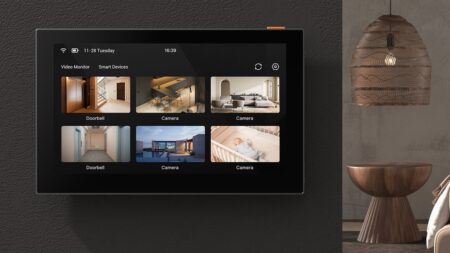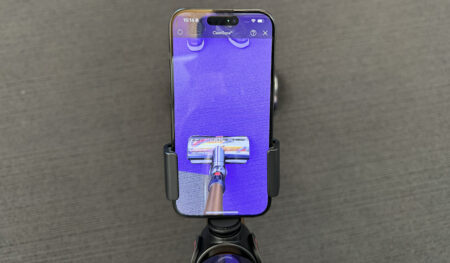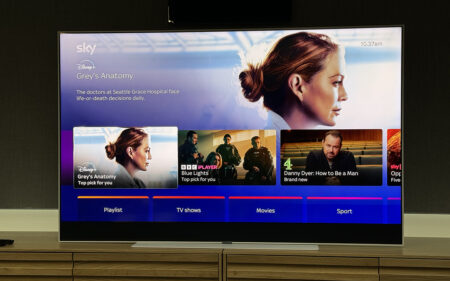Would you share your kitchen? Your car? Your robo-pets?
In just three years Ikea has become known not just for its monochrome rugs and stackable units but also its thoughtful experiments with both hardware and software in the smart home. You might have tried out the Ikea Place AR app, or own a Home Smart wireless charging lamp – its next concern is the future of home audio via a collaboration with Sonos due in stores in 2019.
Bas van de Poel’s job is to think slightly further ahead.
He’s a creative strategist at Space10, Ikea’s external innovation lab, and one of his current projects, One Shared House 2030, is interested in how co-living could solve problems including high living costs in cities and even loneliness.
The playful survey is a collaboration between Space10 and Anton + Irene, which explores what people would be happy to share – kitchens, smart devices, childcare – in co-living environments in the future. You can try it out now by posing as an applicant for the shared living space to see the results so far; your answers will be anonymous.
“Technology will be profoundly different in 10, 12 years time but people will still want to have a cosy home, want to have nice conversations with people. People will still need people basically,” van de Poel tells us over Skype from the Space10 HQ in Copenhagen.
The art of co-living

One Shared House 2030 is a fun, whimsical experience for anyone interested in the future of living – no wonder then that it had 5,000 submissions in two weeks. You are invited to answer questions about sharing energy, services, space, furniture and technology, among other essential considerations such as whether you prefer pets, no pets or only robotic pets.
One suggestion for negotiating energy use in a house with shared living and working spaces is to agree on a set quota per person and then “let the smart things negotiate” on our behalf, an idea that 24% of people so far seem to be able to get behind. Similarly, you are given the option to let an algorithm, rather than the tenants or management, decide any new house members – very Black Mirror and 18% of respondents so far agree.
We really believe in this term natural interfaces, interfaces that are an extension of us as human beings
Elsewhere there are questions about whether you would share a self-driving car, self-sustaining garden and other futuristic mod cons with your co-living housemates. But the majority of the questions are geared towards technology which blends into the background and lets you just live together. Modular walls or clearly defined spaces? Daily dinners? Anyone who craves a little more company, works from home regularly or is even 10% of an introvert can see the benefits of this flexible approach to living with others.
“We really believe in this term natural interfaces, interfaces that are an extension of us human beings,” says van de Poel. “Technology is expanding exponentially but human evolution can only go this fast.
“Technology should support us instead of distracting us. Right now, I really hope it will become more embedded into the environment and, to your point, it becomes more ambient in a way.”
It’s not a cold, Tesla future or nothing
One of the most curious things about Space10’s shared living project is how far from science fiction it feels. Sure it’s futuristic but, fitting with the Ikea aesthetic, it’s less reliant on specs and shiny surfaces than most and that’s promising for the future of Ikea’s own smart home endeavours: “Personally I don’t want to live in a Tesla future where everything is extremely masculine, glass and iron. I’d rather live in something that’s a little more soft and natural.”

When it comes to gadgets with that crucial sense of playfulness, van de Poel mentions Teenage Engineering and Raven’s ‘H’ and ‘R’ smart speakers which look like, well, a robotic arm and a stack of colourful coasters, I guess.
He is also impressed with Apple’s AirPods which are “flawless” from an ergonomic standpoint and has high hopes for augmented reality’s impact on our lives. I ask if layers of AR information will change what tech we have in our homes – displays for instance. “That was Mark Zuckerberg’s point during last year’s F8. Why buy a $500 Samsung PC when you can buy a $1 augmented reality app? I think that’s a fair point.”
Voice interaction, though, seems to be key to this idea of natural interfaces in the home. “We’re hugely fascinated by all this voice technology – smart assistants, smart speakers,” he says. “Because we don’t have to learn to speak the language of technology and computers but the technology finally speaks our language. We can have a conversation with it.”
On the agenda for Space10 in 2018 is more work exploring co-living, AI and natural interfaces as well as some projects that are staying secret for the time being. As van de Poel explains: “We work under the same mission as Ikea and together we decided on our focus areas.” And he’s not above joking about the perception of experimental labs either. “From the outside, it seems like we’re just doing a lot of random shit but it’s actually planned.”
Take the One Shared House 2030 survey here.





